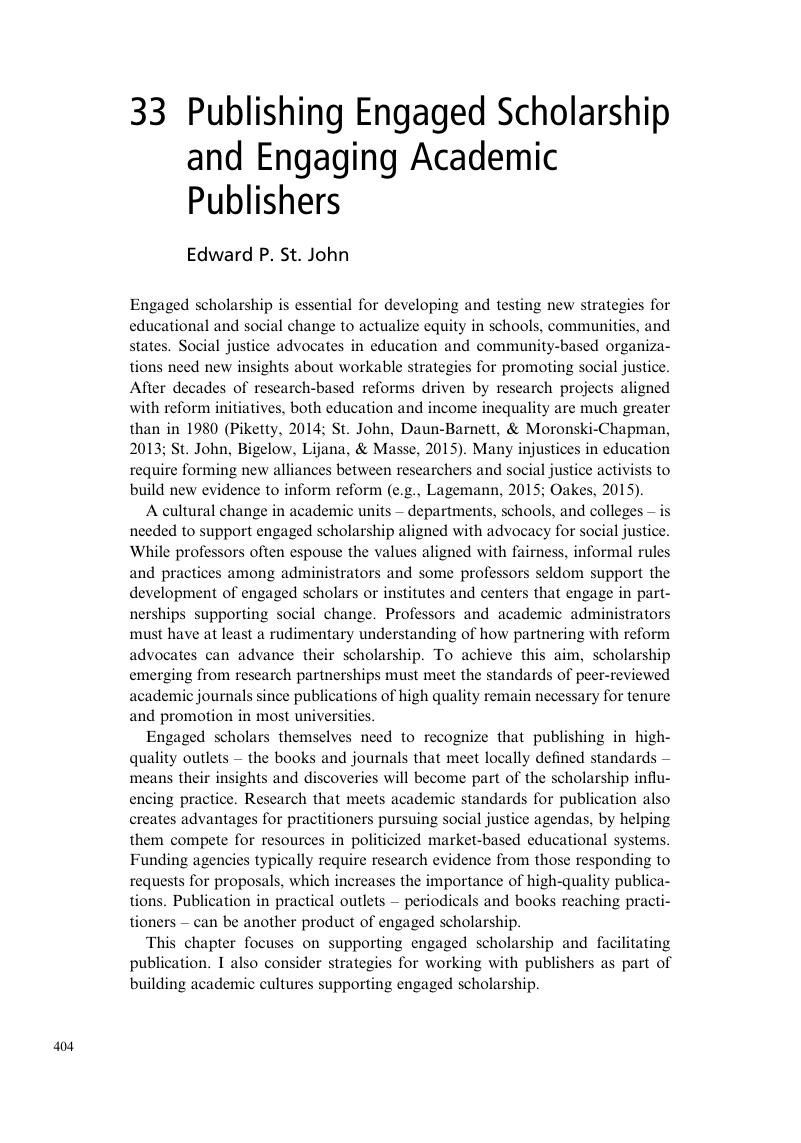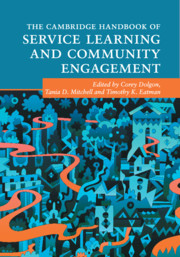Book contents
- The Cambridge Handbook of Service Learning and Community Engagement
- The Cambridge Handbook of Service Learning and Community Engagement
- Copyright page
- Contents
- Figures
- Tables
- Contributors
- Preface
- Introduction
- Part I Histories of Education and Engagement
- Part II Best Practices and Pedagogies
- Part III Engaged Teaching and Scholarship across Disciplines
- Part IV Research, Teaching, Professions, and Policy
- Introduction to Part IV
- 27 The Legacy of the Michigan Journal
- 28 Campus–Community Research Centers
- 29 Real Rewards: Publicly Engaged Scholarship, Faculty Agency, and Institutional Aspirations
- 30 The Professionalization of Community Engagement
- 31 National, Regional, and Global Networks for University Community Engagement
- 32 Academic Support Organizations
- 33 Publishing Engaged Scholarship and Engaging Academic Publishers
- 34 Empowering Local Voices for Community Economic Development
- 35 Breakbeat Breakthroughs
- Part V Critical Voices
- Conclusion
- Index
- References
33 - Publishing Engaged Scholarship and Engaging Academic Publishers
from Part IV - Research, Teaching, Professions, and Policy
Published online by Cambridge University Press: 23 February 2017
- The Cambridge Handbook of Service Learning and Community Engagement
- The Cambridge Handbook of Service Learning and Community Engagement
- Copyright page
- Contents
- Figures
- Tables
- Contributors
- Preface
- Introduction
- Part I Histories of Education and Engagement
- Part II Best Practices and Pedagogies
- Part III Engaged Teaching and Scholarship across Disciplines
- Part IV Research, Teaching, Professions, and Policy
- Introduction to Part IV
- 27 The Legacy of the Michigan Journal
- 28 Campus–Community Research Centers
- 29 Real Rewards: Publicly Engaged Scholarship, Faculty Agency, and Institutional Aspirations
- 30 The Professionalization of Community Engagement
- 31 National, Regional, and Global Networks for University Community Engagement
- 32 Academic Support Organizations
- 33 Publishing Engaged Scholarship and Engaging Academic Publishers
- 34 Empowering Local Voices for Community Economic Development
- 35 Breakbeat Breakthroughs
- Part V Critical Voices
- Conclusion
- Index
- References
Summary

- Type
- Chapter
- Information
- Publisher: Cambridge University PressPrint publication year: 2017
References
- 1
- Cited by



